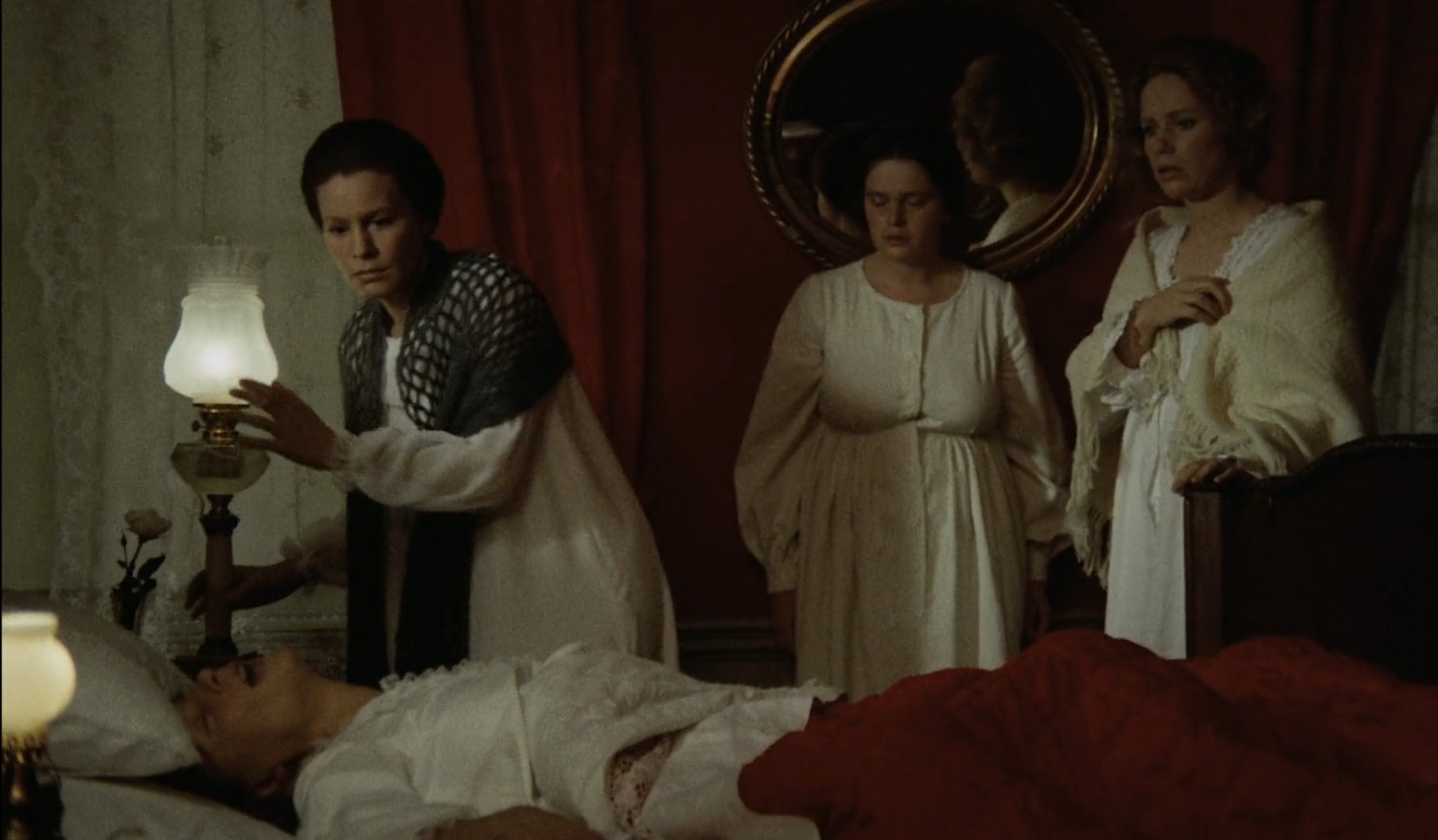Unlike loud cries, the sisters’ whispers in the movie delicately express their pent-up fears and feelings of alienation, and serve as a powerful medium for sharing their deepest feelings with each other.
We usually think that suppressing our inner voice and repeating ourselves in whispers is bad for problem solving and mental health, but in movies, shouting is often represented by unreasonable behavior and incomprehensible screams. Nevertheless, in the most relatable and understandable scenes, the language the sisters use is not shouting, but whispering. This whispered language is the opposite of the expected loud and painful expression. Rather, the whispers delicately express inner turmoil with more urgency, conveying a deeper narrative that is not expressed out loud in shared emotion and quiet solidarity. Whispers are powerful here, carrying the weight of unspoken fears and suppressed grief. It’s a subtle expression of emotion that only the whisperer can truly understand and feel.
I also cautiously wonder if their suffering stems from the alienation of not belonging and the resulting fear, pain, and anger. First, Karin is unable to adapt to the moral codes and religious values imposed on her by the context and atmosphere of the time. She is suffering from peer pressure and the fear that she is being marginalized. This is evident in her stiflingly boring meals with her dour diplomat husband, her self-mutilation of her pussy with broken glass, and her wetting her mouth with her bloodied hands. In the midst of this anxiety and pain, Karin is no longer able to keep her pent-up emotions inside, so she turns to extreme acts to express her inner voice to the outside world.

On the other hand, Maria, who had a close relationship with her family doctor, may have felt alienated through her inner whispers as her relationship with him was growing distant. Her despair at not being able to convince the family doctor to change his mind, and her intense washing in front of the mirror, are moments when her internal pain collides with the external world, and it is at these moments that Maria realizes that she is being marginalized. While she maintains her outward beauty, her inner cynicism and isolation are pushing her further into social isolation.
Agnes is the character who stands closest to the border between life and death, and death is the process of separation from all that is alive and the process of going it alone. It transcends every kind of alienation and fear a human being can feel. For this reason, Agnes longs for the affection and warmth of Anna and her sisters, but is unable to receive it and feels alienated once again. This conflict reminds Agnes of how precarious and fleeting her existence is, and deepens the abyss of her emotions and the inner voice of a dying person. The last moments of her life are a struggle with the ultimate alienation that death brings, with her affection for those left behind and her longing for the love and warmth she wanted to receive from them. These are the most powerful whispers and cries in her life and death moments, leading to a deep reflection on the nature of existence and its end.

Finally, Anna, from the beginning to the end, is a status differentiator from her sisters, not an object of psychological assimilation and empathy; she exists only as a caretaker for Agnes. After Agnes’s death, the sisters allow Anna to take one of her belongings, but they do so with a sense of pity. This was enough to make Anna feel neglected. For Anna, Agnes was the only person she trusted and relied on, and she was the only one who offered her heart to Agnes when she returned from the dead. Ultimately, Agnes may have been the object of her alienation. This suggests that alienation can take different forms for different individuals.